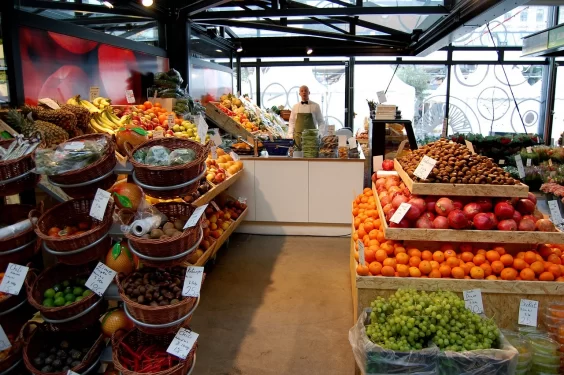We are all fascinated by those who reach 100 years of age and often wonder: “what is the secret to their longevity?”
Many have taken the time to study the differences between individuals who have more life years compared to their counterparts and while genetics play an important role in this matter, so do factors like community, an active lifestyle, access to health care and hygiene, and balanced nutrition.
Optimizing the Aging Process with Nutrition
According to Nutrients, an open-access journal, certain ways of eating can help the aging process – namely diets rich in vegetables, fruits, nuts, cereals, fish, and unsaturated fats.
- Together, these nutrients help to keep our circulatory system operating well;
- They ensure for a healthy gut environment (microbiome or microflora);
- And result in a more stable cellular lifecycle by lowering oxidative stress (in other words, toxins that build up in our bodies as a result of metabolic reactions).

All foods that are high in antioxidants and include herbs, spices, bright-coloured fruits and vegetables, and seeds, should be included on a daily basis, as well as foods containing natural potassium, like fruits and vegetables, whole grains, and vegetarian proteins.
Foods like salmon and flax, which are high in omega-3, can also help reduce inflammation and thereby cardiovascular disease risk. These foods together and regularly incorporated can also promote healthy body composition, protect the brain from aging, reduce the risk of chromosomal damage, and promote an overall healthier quality of life.
Tips for Mitigating the Ailments of Aging
However, it is important to recognize that aging is easier said than done: changes in taste and smell, loss of muscle and bone mass, and digestive health issues (lactose intolerance, constipation) are some of the main ailments of the natural aging process.
- For taste and smell changes, using flavourful ingredients such as lemon, vinegar, fresh herbs, spices, and seasonings can help to enrich the antioxidant content of your food, while elevating flavours that are bold and delicious at the same time.
- To help minimize muscle and bone loss, it is important to build habits that involve physical activities that bring joy and safe and regular movement to the day. This could be walking, swimming, yoga, dance, or any other activities that are accessible and easy to maintain over time. Along with this, eating regularly (every four hours) and balancing your meals to include both protein and calcium sources, will help ensure strong bones and muscles, which when strong, help prevent falls and injuries.
- Digestive health issues are best remedied with good hydration practices of about eight cups of fluid per day, higher-fibre eating through incorporating fruits, vegetables, ground flax meal, nuts, and seeds in the diet, and choosing whole grains and plant-based proteins when possible. Here, physical activity is also important as movement helps the muscles of the digestive tract to contract more regularly, thereby preventing constipation.
It is never too late to start some of these habits, as bodies can adapt at any age. You may surprise yourself with the benefits you experience as you start and maintain a positive aging habits.
After all, age is just a number.
By Dani Renouf, Registered Dietitian at St. Paul’s Hospital.





